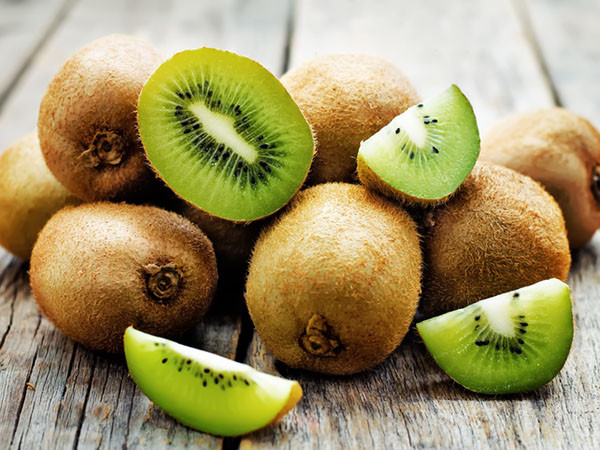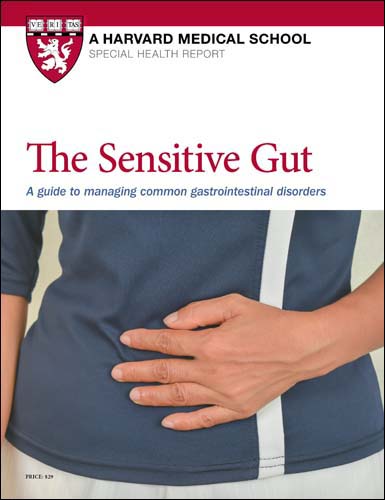Another natural remedy for constipation?

It may seem like a basic question, but what is constipation? The term can describe many types of problems with moving your bowels. Constipation can mean stools that are hard and pellet-like or of reduced volume. It can also describe excessive straining, not having a daily bowel movement, or feeling like you cannot get all the stool out. All of these are descriptions of constipation, yet the symptoms are different.
What is chronic constipation?
Constipation becomes chronic when it lasts for weeks to months. The different symptoms of constipation may mean different issues, and thus require different treatments, so you should be clear when describing your unique issues to your doctor.
To clear up one common misconception among those used to having a clockwork bowel movement daily: it is entirely normal not to have a bowel movement every day. While having too few bowel movements (generally accepted as two or fewer per week) can be a cause of discomfort, there is no physical need to move your bowels daily.
There are two major types of constipation. The first is a sluggish movement of contents throughout the gastrointestinal (GI) tract. The second form of constipation happens closer to the exit, with difficulty getting bowel contents out due to problems with pelvic muscles. For the first form of constipation, treatment can include the addition of fiber via supplements or by increasing your fruit and vegetable consumption. The second form may need further evaluation, with imaging tests or procedures.
I'm definitely constipated! Why is it happening?
There are many reasons you can be constipated, and first it is important to understand why. There are some reversible causes of constipation that may improve bowel movements. If constipation is a new complaint, prior to adding fiber to your diet you should review the symptoms with your primary care doctor to make sure you don't need diagnostic testing like abdominal x-rays or laboratory testing. Check in with your doctor if you are taking any new medications, or if you have rectal bleeding, abdominal pain, weight loss, or nausea and vomiting, as any of these symptoms may mean you need to be evaluated for other, more serious medical conditions.
What I can I do besides taking medications to treat my constipation?
This is one of the most common questions I get from patients, and it makes studies of adding fiber to the diet with fruits and vegetables so appealing. What makes it hard to recommend specific treatment plans is that there is not much good data to help doctors suggest a particular plant or fiber regimen, like we would recommend standardized doses of medications.
An intriguing new study entitled "Exploratory comparative effectiveness trial of green kiwifruit, psyllium, or prunes in US patients with chronic constipation" in the American Journal of Gastroenterology seeks to directly compare different, entirely natural ways to treat chronic constipation. Prunes (as a form of plant-based dietary fiber) and psyllium are well-regarded ways to treat chronic constipation. Not surprisingly, all participants were able to achieve the primary goal of increased bowel movements. It seems that kiwifruit achieved this benefit with fewer side effects.
There are some important limitations to this research. The vast majority of patients were women and the average age was 43, which is typical of patients with chronic constipation. Patients were aware of what intervention (kiwi, prunes, or psyllium) they were receiving. The study was relatively small, with only about 80 patients. And it remains to be seen if relief from constipation with kiwifruit continues after four weeks (which was the length of the study). It does, though, offer another potential addition to the diet for individuals seeking natural remedies to address a chronic complaint. The new research is good enough that I'd be confident to recommend kiwifruit to my patients who are looking to relieve constipation.
Let's say the natural approach does not work: Then what?
As with anything you try on your own, if you have constipation that is new and not responding to things you are trying at home, consult your doctor and see if you need an evaluation for what might be causing your issues. There is no shame in admitting that it is hard at times to get enough fiber (aim for 5 grams per meal) with the modern Western diet. There are good reasons besides constipation (such as for colon health and healthy gut bacteria) to try to eat as much fiber as possible. If you are not able to consume enough fiber (or enough kiwis!) to improve your constipation, there are lots of over-the-counter and prescription-strength laxatives that do an excellent job of treating the condition. When in doubt, reach out! There is no need to suffer when other safe and effective treatments are available.
About the Author

Christopher D. Vélez, MD, Contributor
Disclaimer:
As a service to our readers, Harvard Health Publishing provides access to our library of archived content. Please note the date of last review or update on all articles.
No content on this site, regardless of date, should ever be used as a substitute for direct medical advice from your doctor or other qualified clinician.
















